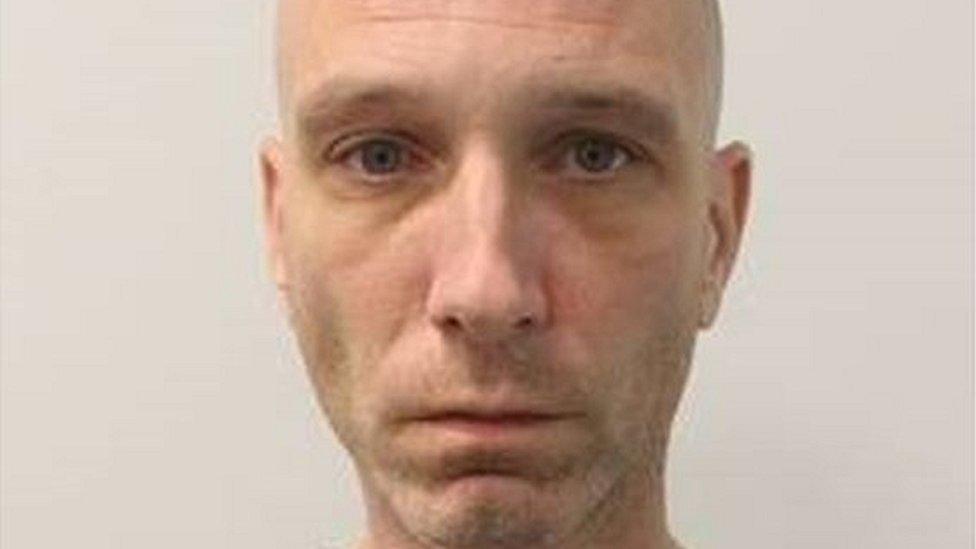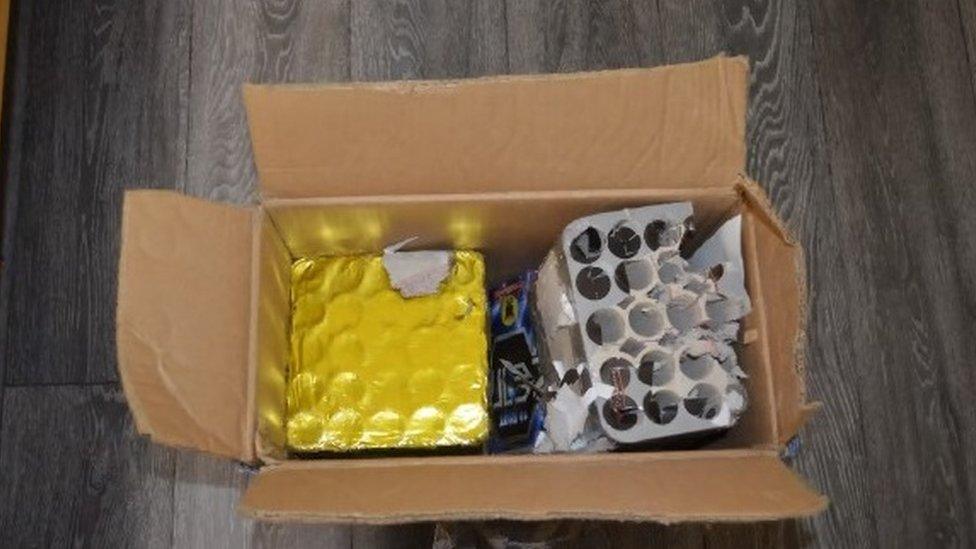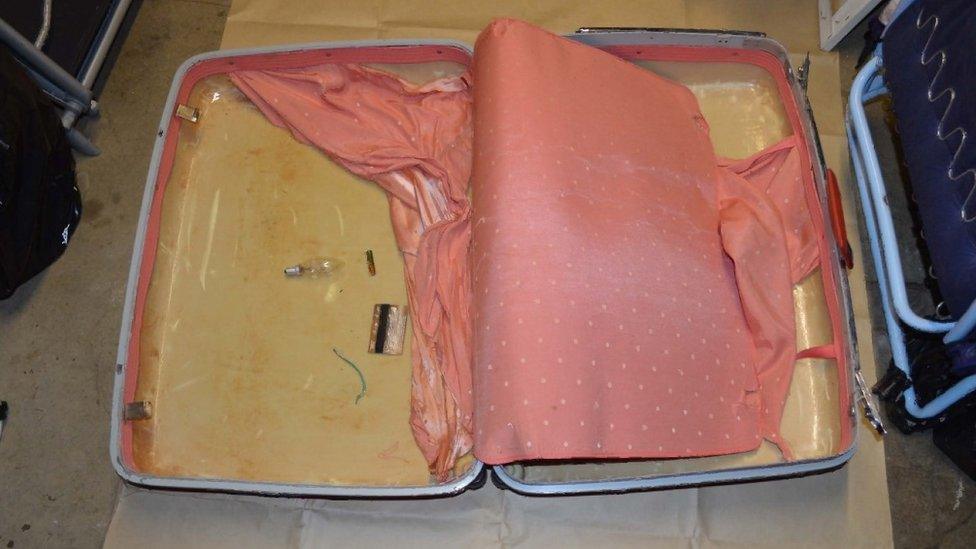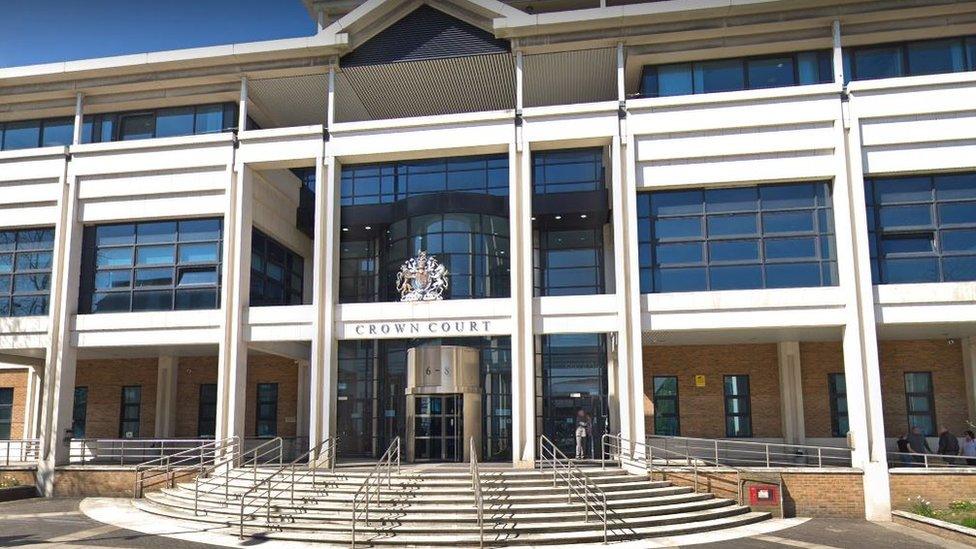Steven Bishop jailed for London mosque bomb plot
- Published

Steven Bishop, who has a history of mental health issues and drug abuse, was jailed for four years
A man has been jailed for plotting to bomb a London mosque as "revenge" for the Manchester Arena attack.
Steven Bishop, 41, admitted buying fireworks and possessing instructions on how to make an explosive.
It was believed that Bishop, of Thornton Heath, had been planning to attack Baitul Futuh Mosque, in Morden.
He was jailed for four years for possessing an explosive substance with intent to endanger life at Kingston Crown Court on Wednesday.
He had originally been charged with preparing an act of terrorism, but prosecutors accepted a guilty plea on Monday.
Jailing him, Judge Peter Lodder QC, said: "The detonation of one or more of these fireworks at Morden mosque may have risked the lives of those nearby."

Bishop stockpiled fireworks and researched instructions on how to build explosives
Bishop, who has a history of mental health issues and drug abuse, said he heard voices in his head.
He said the attack would have been revenge for the Manchester Arena bombing in 2017 and that a victim of the attack had told him to do it.
The court had heard how the 41-year-old had repeatedly searched for memorials to the youngest victim of the attack - eight-year-old Saffie-Rose Roussos.
On 23 October 2018, he made a £40 donation to the Manchester Emergency Fund with the comment: "So sad that this happened to little kids."
A second donation for the same amount made the same day was accompanied by the comment: "I'm in love with my buitiful [sic] Saffie god bless you xx."
Bishop also searched the "Find a Grave" website looking for Saffie-Rose's resting place.

The suitcase which was found in the garden shed at the house of Steven Bishop's mother, containing components for making incendiary devices
A search of his phone uncovered two VPN apps, designed to disguise online activity, which were used to research explosive detonators and the mosque in Morden, the court heard.
Further searches at his mother's house revealed components for making incendiary devices hidden in a suitcase in the garden shed.
Timothy Forte, for Bishop, argued that his client's actions were driven by his fixation on Saffie-Rose and not by far-right ideology.
"It is only ever about Saffie. There is no expression of anti-Islamic feeling," he said.
- Published8 April 2019
